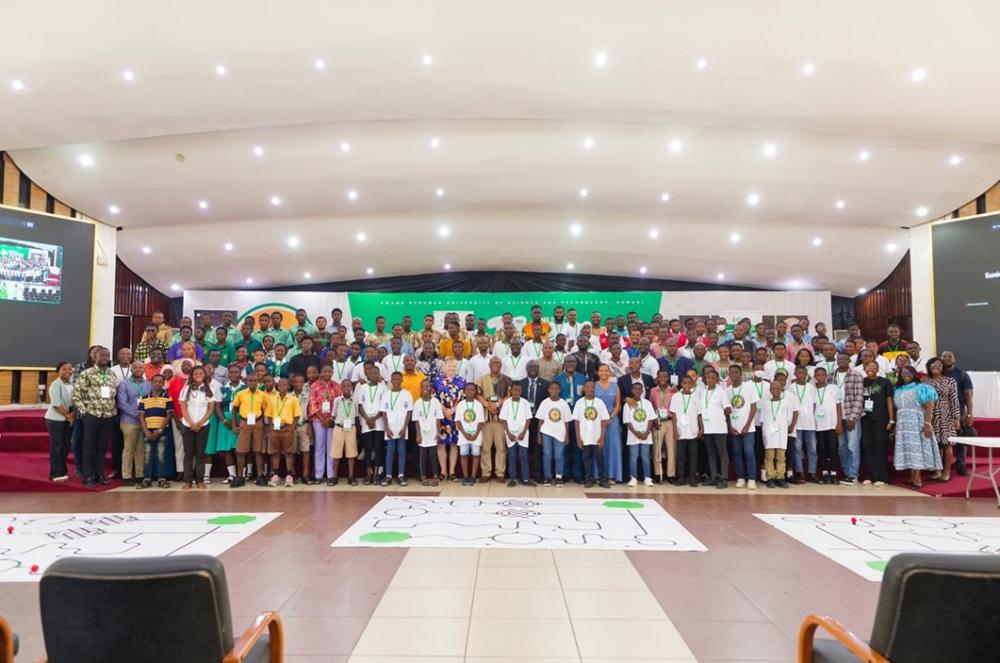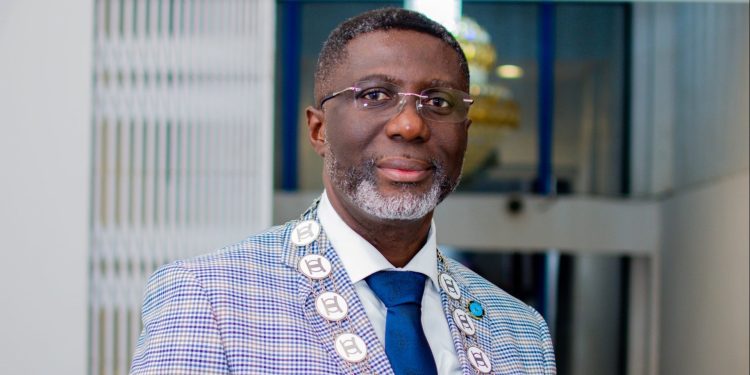The Responsible AI Lab (RAIL) launched its maiden Artificial Intelligence for Sustainable Development (AI4SD) Robotics Challenge, bringing together 14 schools from across Ghana in a vibrant display of technological prowess on October 24, 2025, at the Great Hall, KNUST.
The event was a profound statement of intent for Ghana's educational and technological future. It marked a significant milestone in a concerted effort to embed cutting-edge skills like Artificial Intelligence (AI) and Robotics into the very fabric of the nation's learning curriculum.
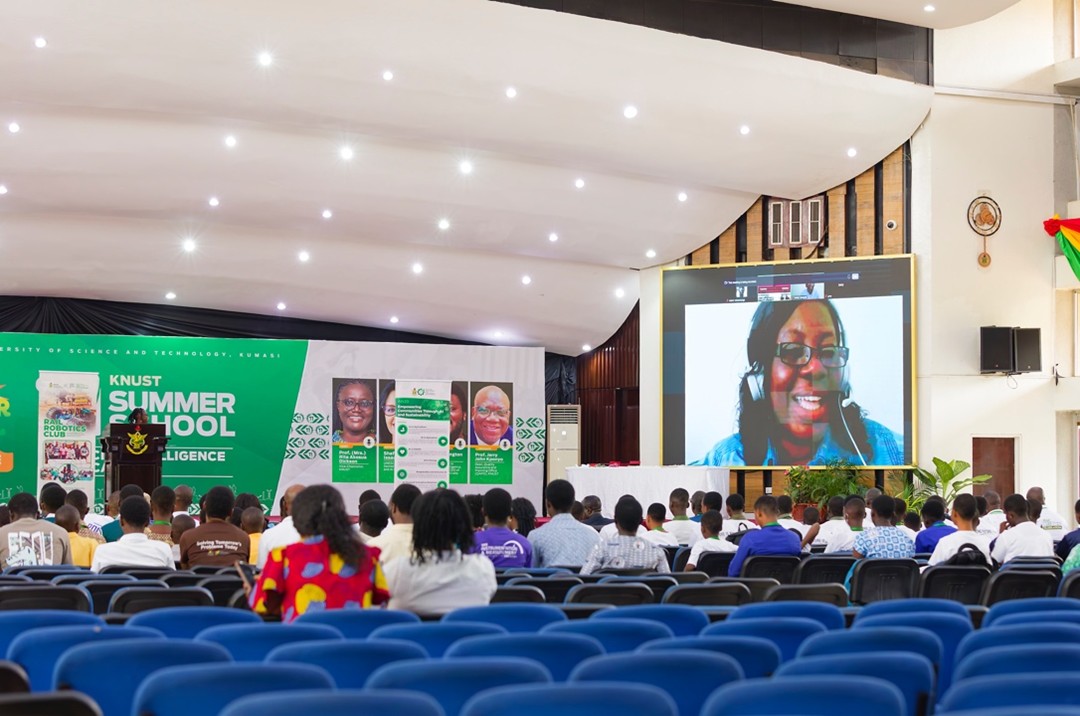
Prof. Eunice Akyereko Adjei, RAIL Women in Technology Lead and AI in Education Lead for AI4SD, delivered a powerful metaphor for the initiative. "What we witness today may resemble the quiet transformation of a cocoon. But within that cocoon lies the promise of a butterfly that will soar like an eagle," she stated. She highlighted the project's "simple but profound" purpose: to celebrate the visionary foresight of the AI4SD Project in its mission to elevate Ghana’s education curriculum and equip students with the skills essential for a globally competitive landscape. She pointed to Prempeh College's remarkable journey to becoming world robotics champions and affirmed, "The future is not just approaching but being built here and now."
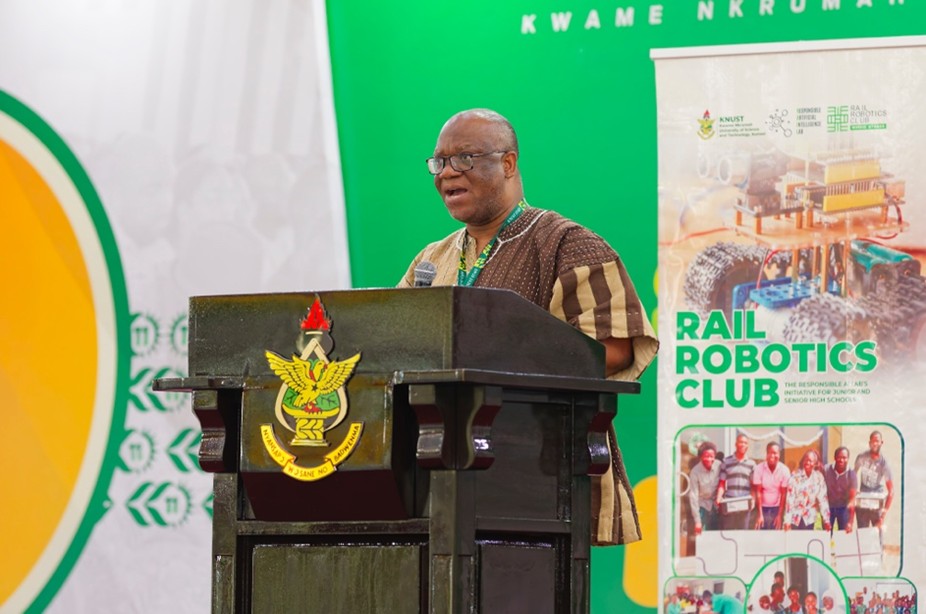
Prof. Jerry John Kponyo, Principal Investigator and Scientific Director of RAIL and Project Lead of AI4SD, emphasised the urgency of the mission. "It is evident that AI has come to stay, and there is an urgent need to build our capacity and fluency in AI to help us secure a future," he declared. He detailed how RAIL, through AI4SD and funded by the French Embassy in Ghana, is leveraging AI to attain the Sustainable Development Goals (SDGs) in areas like agriculture, health, energy, and clean water.
Crucially, Prof. Kponyo announced a significant infrastructural boost: providing two laptops each to the 14 participating schools, part of the project's cumulative donation of 45 laptops. He also revealed that AI and Robotics clubs have been established in 22 schools across Ghana, all of which have received Arduino and LEGO kits to fuel their practical learning. "We believe that Africa can take its place in emerging technologies by building the right talent from the basic level upwards, and even in the nurseries and kindergartens," he added.
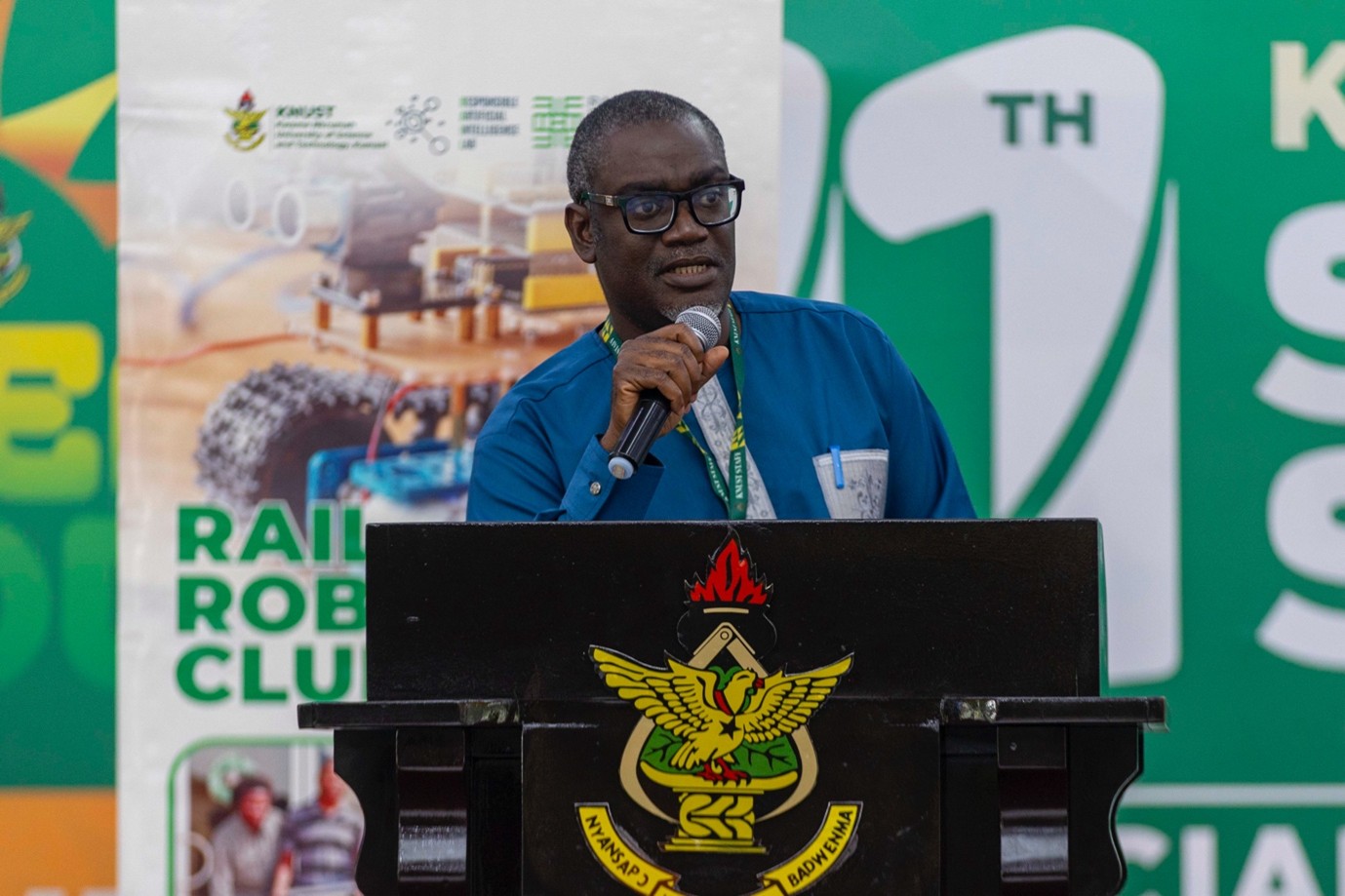
The academic leadership underscored the transformative potential of this initiative. Prof. Kwabena Biritwum Nyarko, Provost of the KNUST College of Engineering, stated that robotics and AI are critical for Ghana’s economic transformation, promising to "boost productivity, enhance efficiency, and open pathways for highly skilled and future-ready jobs." He highlighted the deeper pedagogical value: "When you build a robot, it’s not just about assembling motors and sensors. It’s about learning to think creatively, solve problems critically, and work as a team, the skills needed to succeed today."
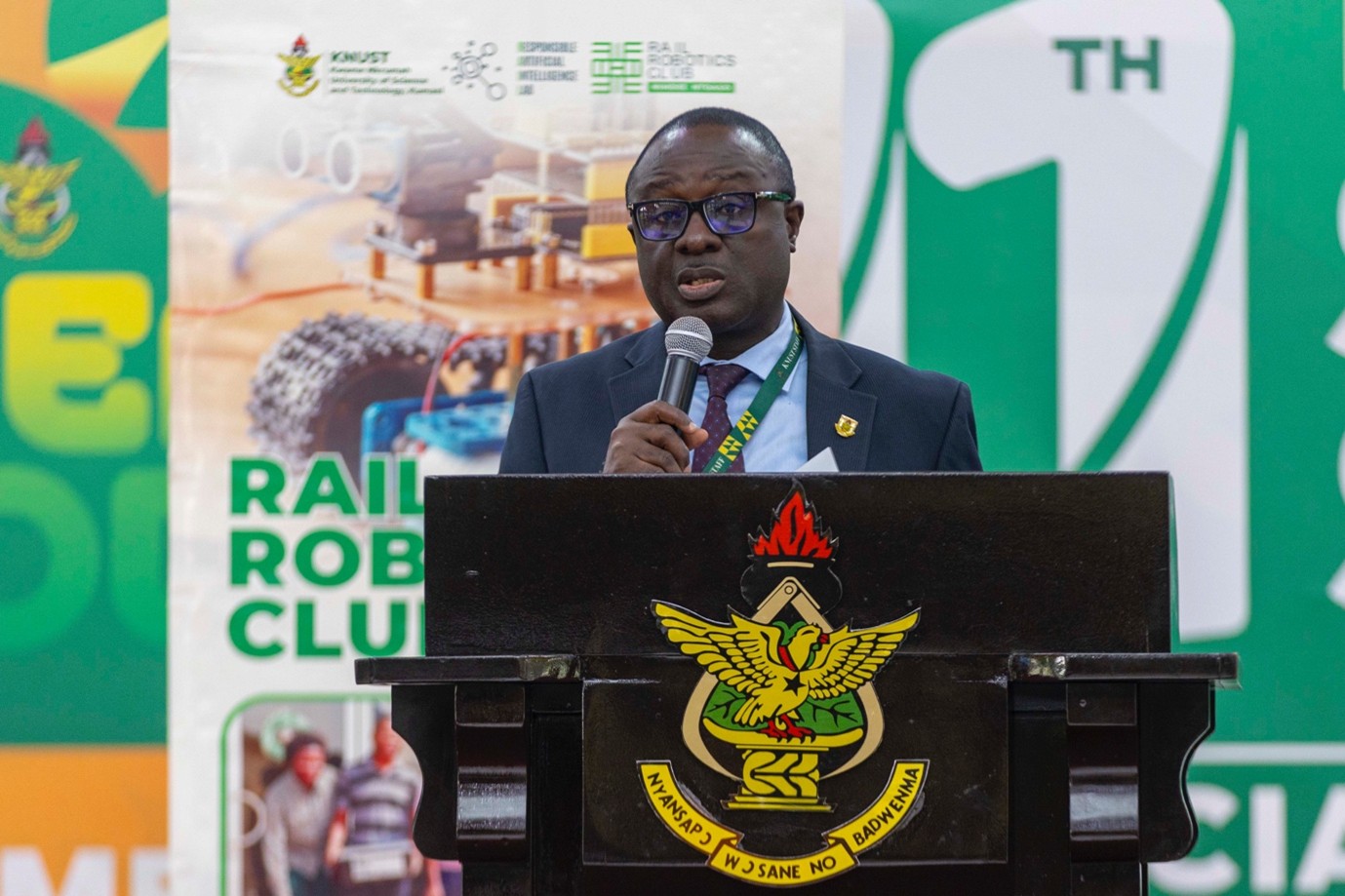
Prof. David Asamoah, Pro Vice-Chancellor of KNUST, commended the French Embassy and partners for their continuous support, noting that the participating schools have "shown resilience and innovation, proving that academia can design and drive technologies that solve society’s problems."
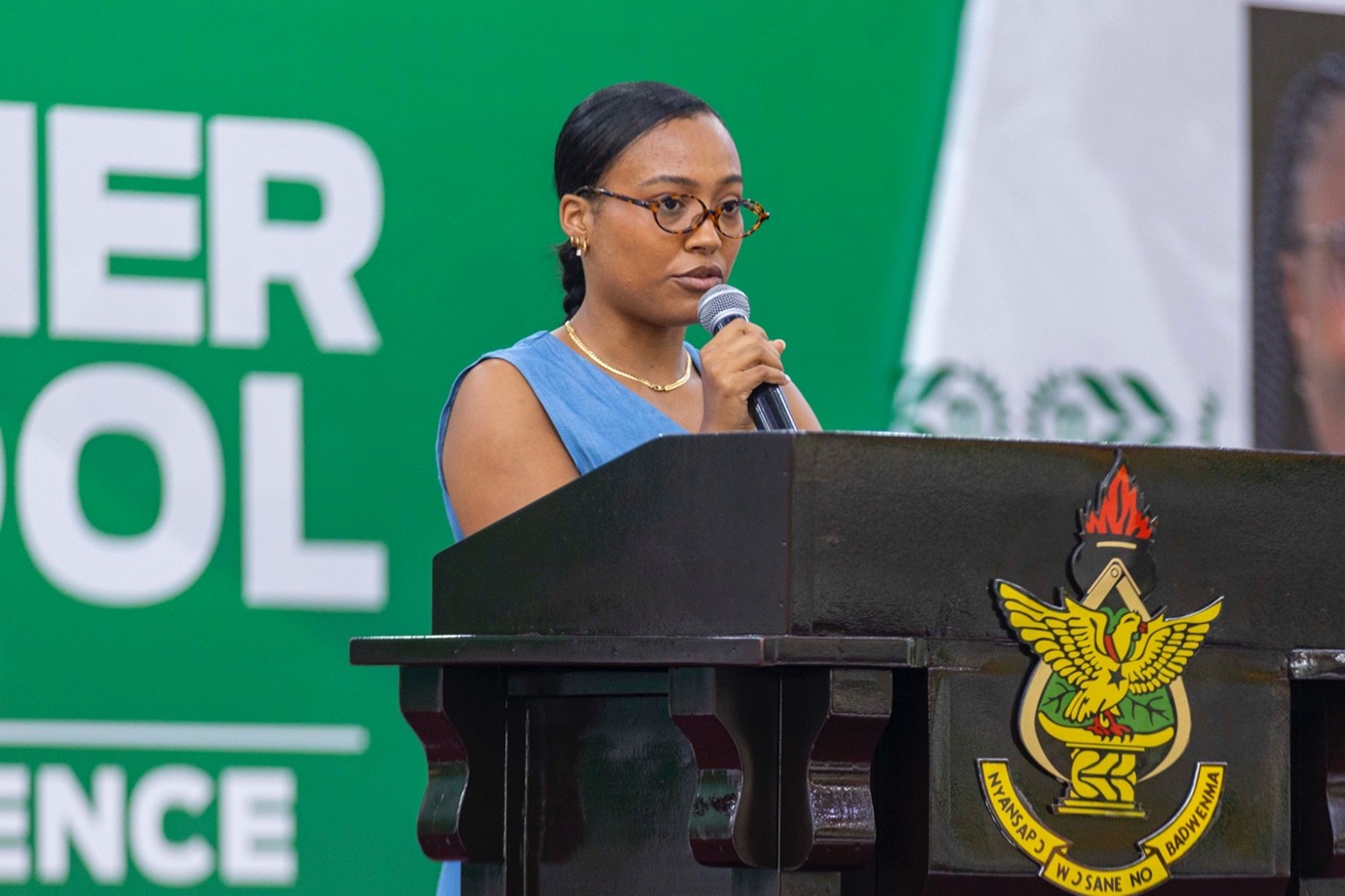
Representing the French Embassy, Miss Elisabeth Morzadec, AI4SD Project Coordinator, urged students to seize the moment. "What you’re doing here is not just a competition, it’s a glimpse into your future," she said, reminding them that they have more tools and opportunities than any previous generation.
Echoing this sentiment, the National STEM Coordinator, Mr. Emmanuel Omang Ocquaye, charged the students to "channel their creativity into developing solutions that align with national and global development goals."
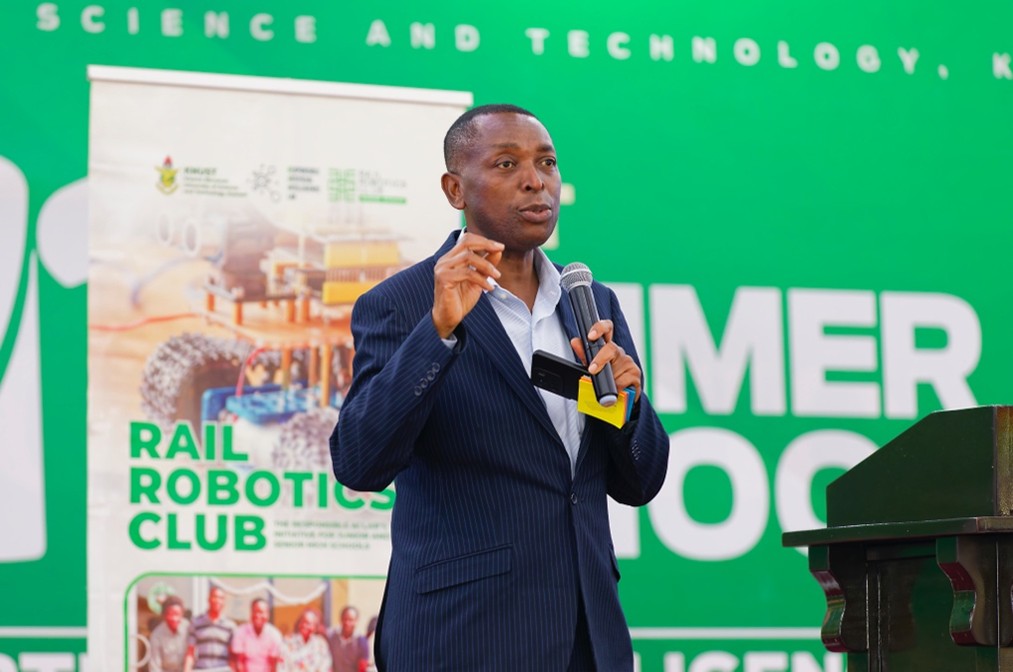
At the same time, Dr. Yaw Okraku-Yirenkyi, Co-founder and Director of the Ghana Robotics Academy Foundation (GRAF), urged mentors to maintain high global standards and to couple character with competence.

The theoretical visions gave way to practical, on-the-mat action as the participating schools: OLA Girls SHS, Peki SHS, Achimota Basic School, Wlitey Basic School, Nkonya SHS, Akuetteh D/A Basic School, Tamale SHS, Saint Hubert Seminary SHS, Avenor SHS, Dagbamete Basic School, and Bolgatanga Girls’ SHS took turns for the robotics challenge, which required precision programming and engineering:
- Junior High Category: The robot had to end in a designated green zone with its front facing southwest.
- Senior High Category: A more complex challenge required the robot to end in the green zone, wait for three seconds, spin anti-clockwise, and come to a final stop facing South-East.

After a day of intense competition, two schools emerged victorious. Dagbamete Basic School clinched the top prize in the Junior High School category, while Avenor Senior High School was crowned the winner in the Senior High School division. All participating schools were recognised with certificates and awards for their outstanding efforts.

Closing the event, Prof. Imogen R. Coe, Past President of the Canadian Society for Molecular Bioscience, left the students with inspiring words of encouragement: "You are the future, and you can do great things. This competition is part of that journey."

The inaugural RAIL Robotics Challenge has undeniably set a new benchmark for STEM education in Ghana. By providing the tools, the training, and the platform, the RAIL AI4SD project is not just identifying talent; it is systematically nurturing the seeds of innovation, ensuring that Ghana's next generation is not merely prepared for the future but is actively building it.


